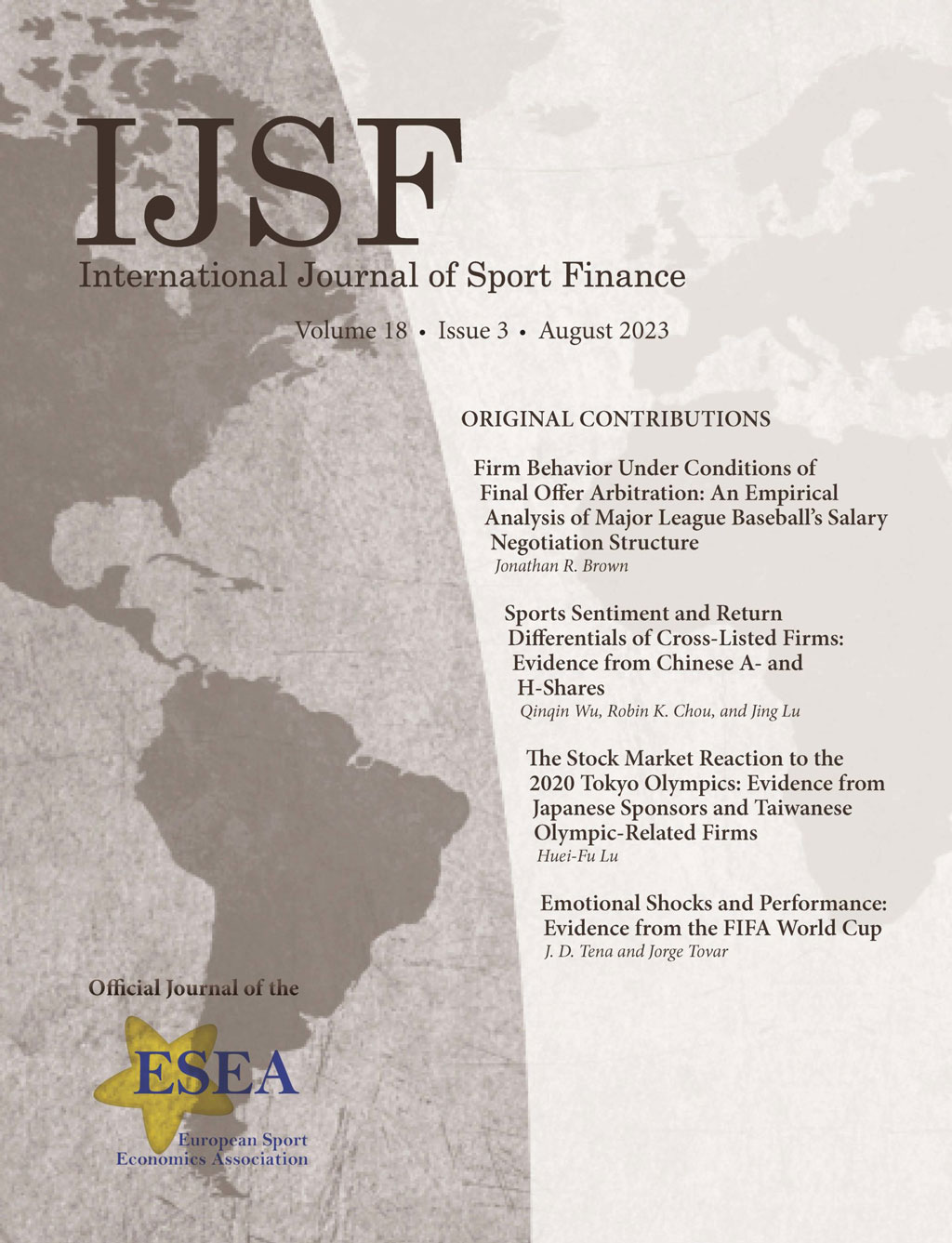
Articles
Firm Behavior Under Conditions of Final Offer Arbitration: An Empirical Analysis of Major League Baseball’s Salary Negotiation Structure
This paper explores the use of final offer interest arbitration (FOA) in Major League Baseball (MLB) and whether arbitrated salaries differ meaningfully from private settlements. MLB provides an excellent environment to analyze FOA because it is common practice for eligible players and their teams to announce official intended arbitration figures well in advance of hearings but ultimately privately negotiate a contract in the interim. This allows for consideration of the bounded arbitrated salary environment even when a hearing is avoided. Results reaffirm the findings of Burgess and Marburger (1993), which suggested that arbitrated salaries are of “low quality” in that the distribution range is wider for arbitration compared to private negotiation. Second, this paper contributes to existing literature by expanding analysis to including quantile regression, which indicates that not only is contract length positively correlated with players’ salaries but also statistically significant differences in this effect exist throughout the distribution.
JEL Classification: J41; L20; Z22
DOI: doi.org/10.32731/IJSF/183.082023.01
Sports Sentiment and Return Differentials of Cross-Listed Firms: Evidence from Chinese A- and H-Shares
We explore the relationship between the Chinese Football Association Super League (CSL) game outcomes and the returns differentials of Chinese cross-listed A- and H-shares. We find that a team’s win leads to a significant rise in the next-day return differentials for locally headquartered firms. Furthermore, the win effects are more pronounced for critical games, games with high attention, and firms with low institutional investor shareholding. In contrast, the loss effects are more significant if a CSL team loses by a margin of more than 2.5 points. Additionally, sports sentiment mainly affects high-liquidity sectors because their silent characteristic tends to be compatible with sports sentiment.
JEL Classification: G12
DOI: doi.org/10.32731/IJSF/183.082023.02
The Stock Market Reaction to the 2020 Tokyo Olympics: Evidence from Japanese Sponsors and Taiwanese Olympic-Related Firms
This study aimed to examine the impact of a major sporting event, the 2020 Tokyo Olympics, on abnormal returns of Japanese sponsors and Taiwanese Olympic-related stock prices during three different periods, including the hosting announcement, the postponement in light of the COVID-19 pandemic, and the holding as scheduled. Using the event study approach, secondary data were collected to investigate the fluctuation of abnormal returns of official Japanese sponsors and Taiwanese Olympic-related stocks. The empirical evidence showed that Olympics-related news disclosures significantly affected the abnormal returns of official sponsors’ stock prices during both the periods of the hosting announcement and the postponement announcement but not during the period of holding as scheduled. This study also verified that the postponement announcement of the 2020 Tokyo Olympics and its holding as scheduled would generate positive and negative spillover effects on the stock market of a non-host country.
DOI: doi.org/10.32731/IJSF/183.082023.03
Emotional Shocks and Performance: Evidence from the FIFA World Cup
Significant events can trigger emotions affecting individuals’ performance. This paper uses granular, event-level data from the 2018 FIFA football World Cup to study how scored and conceded goals impact performance as measured by each player’s passing ability. These emotional swings allow for the study of these shocks’ influence and duration on players’ ability to pass the ball. The main result shows that conceded goals negatively impact individual performance between three and nine minutes of the trigger effect, while scored goals do not significantly impact passing ability at the conventional levels.
JEL Classification: D91, Z29, C21
DOI: doi.org/10.32731/IJSF/183.082023.04

